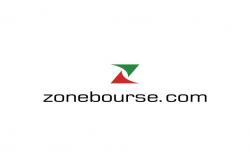The local textile sector fervently embraces the challenges of sustainable development and digitalization. Moroccan industry, recognized for its dynamism and innovative side, is turning to smart textiles and eco-responsible practices to conquer new markets. Today, companies are redefining the standards of textile production based on eco-design and circularity.
Sustainable development, digitalization, and even smart textiles are all innovation issues on which the local textile industry is banking to conquer new markets, even within our borders. Indeed, in recent years, Morocco has witnessed the rise of a fashion industry driven by local designers increasingly recognized for their innovative work. Moroccan brands are increasingly popular in international markets, providing opportunities for local businesses to expand in the areas of designing, manufacturing and selling high-quality products.
A renewal is needed
Thus, in terms of innovation, the Moroccan Association of Textile and Clothing Industries (AMITH) is adopting this renewal with full speed. Recently, a memorandum of understanding was signed with operators from Portugal and Switzerland with the objective of producing innovative products with high added value and a low carbon footprint. According to AMITH, these partners are ready, in the long term, to invest upstream to complete the value chain.
Furthermore, innovations continue at the level of the Textile Technical Center (CTTH). A craze is also observed among certain industries which have made innovation a pillar of development. This is the case of Vita Couture, which, for several years now, has invested in highly technological tools.
“In a highly competitive market, work is being carried out within our structure to be a force for proposals to understand the needs of our customers. We were the first in the market to use 3D tools and introduce artificial intelligence into the supply chain and manufacturing in the market. And, more recently, we invested in a fabric printing unit,” relates Mohamed Benajiba, administrator of Vita Couture.
Same story with Softgroup, which prioritizes the automation of the process. But not only that, to ride this wave of innovation, the entity is banking on human-focused training, something that can stimulate the creation of new products. Speaking of products, Ismaïl Kabbaj, general manager and administrator of Softgroup, one of the national leaders in the sector, indicates that many raw materials have had a makeover.
“All current standard products have recycled alternatives. This goes from the raw material to the finished product. Our public institutions support and present foreign groups specializing in this type of transformation. They highlight the strategic advantages of our country,” he explains.
The trend is towards circularity
Greening production also remains one of the major concerns. Many companies integrate the sustainable development approach. For Softgroup, this transition allowed it to gain in productivity and resources. Investment in more environmentally friendly machines, backed by a new recycling and water treatment station installation, has helped to reduce water consumption by more than 70%.
Still in this perspective of decarbonization, the industrialist has initiated the third phase of extension of the photovoltaic panel station to reach a surface area of more than 15,000 m², Vita Couture is part of the same circularity approach, even at the level of product design and advocate the eco-concept. It must be said that fashion trends are also inspired by this notion of eco-responsibility.
According to manufacturers, raw materials and transformation processes increasingly need to be environmentally friendly. The largest global players and global distributors are gradually requiring decarbonization plans from their suppliers in addition to respecting social standards. Fashion, for its part, according to Ismaïl Kabbaj, continues to operate in a cyclical manner through different events with the choice of a “palletization” of models and colors, the latter having to continue on the wave of recyclable or “textile bottle” or “textile to textile” through well-traced circuits.
For its part, Vita Couture reveals that rustic linen-based fabrics are highly appreciated. The industrialist specifies that currently demand is oriented towards qualitative raw materials.
Mohamed Benajiba
Administrator of Vita Couture
“In a highly competitive market, work is being carried out within our structure to be a Source of proposals in order to understand the needs of our customers. We were the first in the market to use 3D tools and introduce artificial intelligence into the supply chain and manufacturing in the market. And more recently we invested in a fabric printing unit.”
Ismail Kabbaj
DG Softgroup
“All current standard products have recycled alternatives. This goes from the raw material to the finished product. Our public institutions support and present foreign groups specializing in this type of transformation. They highlight the strategic advantages of our country.
Maryem Ouazzani / ECO Inspirations






